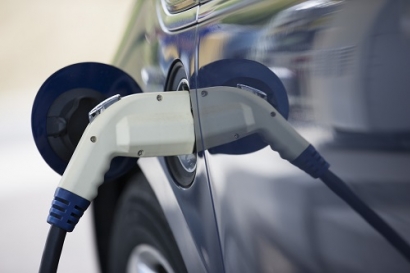
Growthdeck states the lack of infrastructure has been a key impediment on the adoption of plug-in vehicles across the UK.
The City of London has the highest percentage of electric vehicles of all 408 areas of the UK, with 5.58%* of vehicles** licensed there being plug-ins.
London also has the UK’s greatest density of public charging stations, with 36 charging points in just one square mile. This is more than much larger areas like Watford (30), Cambridge (28) and Swansea (24). This convenience is likely to have encouraged both the city’s residents and businesses to take up electric vehicles.
The Top 10 areas for electric vehicles also include second-placed Peterborough, where 5.22% of vehicles are now plug-ins, and fifth-placed Slough on 3.32%. The high percentage of plug-ins in these locations is in part due to them being key UK logistics hubs, where businesses are transitioning to greater use of electric vehicles.
Peterborough is home to large distribution centers for businesses including Tesco, Amazon and Ikea. Slough, meanwhile, located close to Heathrow airport, is a hub for international logistics. Royal Mail has a 1.1 million sq. ft. worldwide distribution center in the town, while DHL and Bidvest also have major operations there.
Rounding out the Top 10 is Renfrewshire, west of Glasgow, where 2.03% of vehicles are electric. Renfrewshire Council recently announced that 20% of its vehicles are now electric.
Growthdeck says there has also been a surge in consumer demand for electric vehicles driven by reduced ‘range anxiety’ (fear of running out of charge before reaching a charging point), more vehicle options and increased environmental awareness.
However, growth in charging infrastructure is now key to fueling more widespread adoption of electric vehicles. With many councils suffering from constrained budgets, the provision of bigger charging ‘hubs’ by private businesses is becoming ever more important.
Gary Robins, Head of Business Development at Growthdeck, commented, “Electric vehicle uptake remains low in areas which lack the charging infrastructure to support them.”
Taxis, minicabs and private vehicles pose a key challenge, as in many cases they will need to charge in public at least once a day. This is a major issue in London where a lack of charging points has led to waits of up to two hours for taxi drivers to even begin to recharge.
eVHub, the 30-minute electric vehicle charging hub provider, is raising £3 million of capital to fill London’s growing electric vehicle charging capacity gap through Growthdeck.
eVHub’s charging hubs will house between 15 and 30 charging connectors that can recharge a vehicle in half an hour. The firms first two flagship rapid charging sites at the high-demand charging ‘blackspots’ at King’s Cross and Heathrow Airport, after which they plan to expand to 100 sites within five years.
Top 10 locations with the highest number of plug-in vehicles licensed as a percentage of total vehicles

* Year end June 30 2019. Source: DVLA
** Including cars and light goods vehicles

